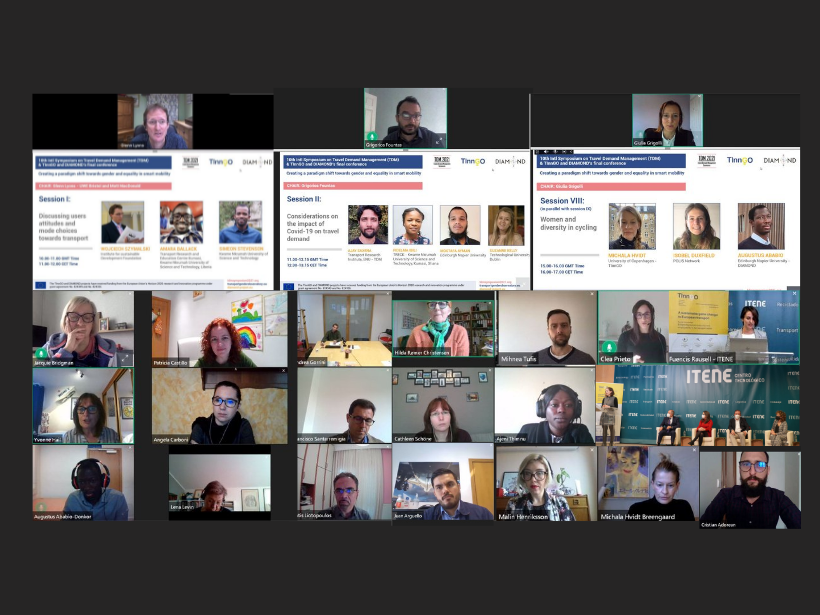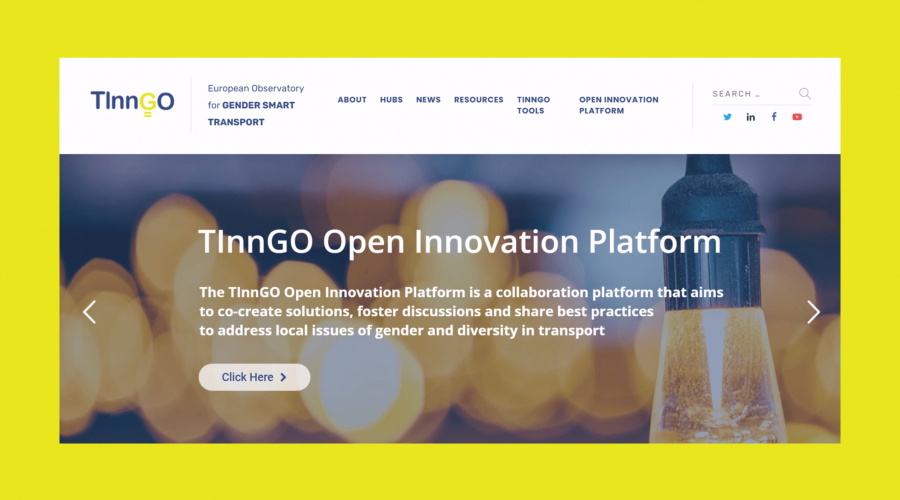- During TInnGO and DIAMOND Final Conference, organised in conjunction with the 10th International Travel Demand Management Symposium, project partners have presented new approaches, data, tools and action plans for achieving diversity and gender equality in transport and mobility.
- The event, celebrated from November 17 to 19, has been organised by ITENE, Eurecat, the University of Coventry, the Edinburgh Napier University and the Technological University Dublin.
- The event gathered together 60 international speakers and over 150 attendees, including researchers from universities around the world, professionals from the transport and mobility industries, representatives from associations and platforms working on gender equality and policy makers involved in the definition of mobility plans at a local, regional, national or European level.
Valencia, 19 November 2021.- TInnGO and DIAMOND projects, funded by the European Commission under the Horizon 2020 programme, have collaboratively presented new conceptual approaches in transport and mobility, the results of a cross-European intersectional gender and diversity sensitive data collection, Gender and Diversity Action Plans, educational guidelines, new designs, Corporate Social Responsibilities protocols and practical tools to foster and achieve gender equality in transport, both through education and employment, such as white papers, curriculum guidelines, an observatory or a toolbox for transport operators’ fairness and inclusivity self-assessment.
TInnGO and DIAMOND started at the end of 2018, were funded under the call “Demographic Change and Participation of Women in Transport”, aimed at promoting an increase of the presence of women in the transport sector, through the assessment of women characteristics and needs, as well as the development of tools and new technologies to assess their acceptance to particular transport modes and non-discriminatory performance as users and as employees.
Projects final event has taken place online in conjunction with the 10th International Symposium on Travel Demand Management, with the participation of 60 international speakers and the attendance of over 150 stakeholders from around the world from the academia, industry, members, or advocacy associations and platforms towards gender equality and inclusivity and policy makers.
During the conference, partners from the TInnGO project have presented at the conference the one-stop Observatory (available at transportgenderobservatory.eu) for policy-makers, scholars, journalists and social organisations involved in Smart Mobility, which includes an Open Data Repository, a survey on mobility patterns, an Open Innovation Platform with good practices and innovative design ideas, a learning centre with training materials and 14 inspirational case studies of successful women employed in the fields of transport and smart mobility.
“A large part of TInnGO results would not have been possible without the activities performed by the ten hubs created across Europe, which developed ten Gender and Diversity Action Plans that can be translated into different cultural contexts to develop gender and diversity sensitive smart mobility as a fundamental component of a smart city”, stated Andree Woodcock, Professor at the Coventry University and TInnGO Principal Investigator.
The conference has also showcased TInnGO education manual for gender inclusion in the transport sector and the Gender and Diversity Action Plans (GaDAPs) developed. In this context, TInnGO has established a set of five Gender Smart Indicators (affordable, effective, sustainable, attractive and inclusive) which can be used to measure the degree to which transport solutions meet the needs of various people.
On the other hand, representatives from DIAMOND project, aiming at analysing and converting data into knowledge with notions of fairness to move towards a more inclusive and efficient transportation system from a gendered perspective, have presented the methodological approach that was followed and the main results of a cross-European data collection campaign to elucidate on women needs, barriers and opportunities in public transport, shared cycling services and as autonomous vehicles’ users, as well as employees in the transport sector.
In addition, DIAMOND project-developed main tools have been showcased, comprising a demonstration of a self-diagnosis tool to provide recommendations regarding inclusion in diverse scenarios to obtain an equitable model in the transport systems. The tool, targeting transport operators and policy makers, will generate recommendations for a fairer and more inclusive transport system and will identify challenges related to mobility from a gender perspective.
“We have made use of technologies such as data mining, machine learning and Decision Support Systems to analyse and compile gender data and develop a set of self-evaluation tools,” explained Patricia Castillo, coordinator of DIAMOND project from Eurecat Technology Centre.





